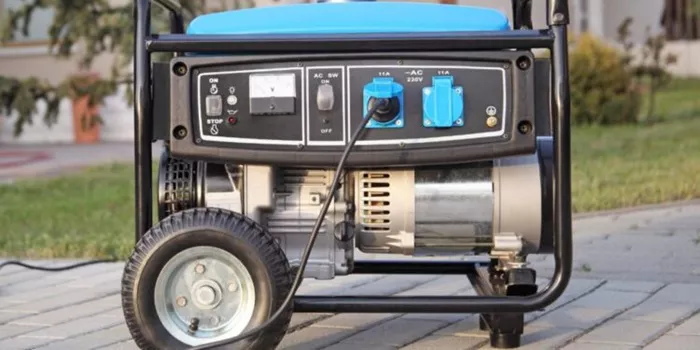In the bustling outskirts of Lagos and the heart of Nigeria’s capital, Abuja, where power outages are a daily hassle, self-servicing generators have been a practical solution for households, small businesses, and companies. These generators have kept the lights on and businesses running when the power supply fails, which is more often than imagined.
Soaring Prices Hit Hard
Recently, however, this solution is slipping out of reach. Walk into any generator shop, and you’ll see worried faces and fewer customers. The reasons are clear: high inflation, rising business costs, and hefty import tariffs, all worsened by the devaluation of the naira. For business owners who depend on these generators to keep their doors open, the rising prices are a harsh reality.
An 11 kilovolt (kV) generator, once affordable, now costs between N700,000 and N750,000, according to a recent market survey by Nairametrics. The familiar hum of generators is growing quieter as fewer people can afford them. Reliable backup for power outages is becoming a luxury, leaving both sellers and buyers in a difficult situation, uncertain about the future.
Market Trends Across Regions
“We don’t see customers the way we used to,” said M.D. Emeka, a generator seller around the Maryland axis on Ikorodu Road. “You might think it’s due to an improvement in power supply, but that’s not the case.” Pointing to an ELEPAQ generator with a tire wheel beneath it, he added, “This 11kV used to sell for around N450,000 six months ago. Now, it’s N700,000.” His words reflected the struggles many in the industry are facing.
When asked which generator would power a small business with two deep freezers and other appliances, Festus, another dealer in Kubwa in Abuja, pointed to an 11kV model. He suggested that an 8kV SUMEC generator, priced at N630,000, could also do the job. “This one will handle a deep freezer and a fridge. It can even run an AC, as long as there aren’t other heavy appliances,” Festus explained. However, he noted that people are less interested in “big gens” now due to the high prices. “Fuel is expensive, and a generator we used to sell for N300,000 is now N630,000,” he added, still pointing to the 8kV SUMEC generator.
Similar trends are observed by Nairametrics in other markets such as Alaba, Ladipo market, Satellite Town in Festac, as well as local communities like Ikorodu, Ipaja, and Egbeda — all parts of Lagos. On average, Nairametrics observed the following prices of each model:
11kV Generators: N700,000 to N750,000 (depending on location and models)
8kV Generators: N610,000 to N650,000 (depending on location and models)
3.3kV Generators: N450,000 to N400,000 (depending on location and models)
2.8kV Generators: N350,000 to N390,000 (depending on location and models)
No Alternative for Small Business Owners
In Nigeria, where the national power supply is notoriously unreliable, small businesses rely heavily on generators like the 11kV and 8kV models to keep their operations running. Despite government efforts to boost power generation, the country still produces only 4,500MW for over 200 million people. This limited supply means that businesses needing constant electricity must often find their own solutions.
Alice Okoye, a middle-aged woman in Abuja, runs a cybercafé that serves students, professionals, and anyone needing internet access. However, she struggles with the erratic power supply. “We get less than 12 hours of electricity a day, mostly in the middle of the night,” she explained, frustration evident in her voice. “They say we’re in Band B, but it feels like we’re forgotten. They bring the light at night, then take it away during the day, only to return it in the evening,” Alice lamented. “That means we don’t get to see light during business hours.”
Her cybercafé depends on “two big gens,” both of which are nearly worn out due to overuse. With prices rising, Alice is saving to buy a new generator. “How can I afford a generator costing over half a million when my business doesn’t earn that much even in six months?” Alice’s experience is shared by many others. Barbers, welders, boutique owners, and small lounge operators across Nigeria face similar challenges.
Christopher Orsu, a barber in Surulere, Lagos, said he has become adept at maintaining his generator. “People don’t wait for you if you don’t provide electricity; they move on to the next shop,” he said. Orsu prays every day his generator does not run out of steam, “It means I will have to pack up or borrow money to keep my shop open. Generators are gold now,” he told Nairametrics.
Solving Electricity Problems in Nigeria
Nigeria’s electricity sector continues to battle low power supply, leaving households and businesses to depend on alternative sources like generators and solar panels. The Minister of Power has announced plans to ramp up power generation, but for now, the struggle continues for many Nigerians who rely on generators to keep their businesses and homes running.
- Siemens Boosts Factory Capacity to Support India’s Make in India Initiative
- Mercedes-Benz India Partners with DPIIT to Boost Startup Ecosystem
- Maruti Suzuki Adds Electronic Stability Program to Super Carry Mini Truck
- JCB’s Hydrogen Engine Cleared for Commercial Use Across Europe
- Mills CNC to Showcase New Technologies at Manufacturing Solutions – Ireland

